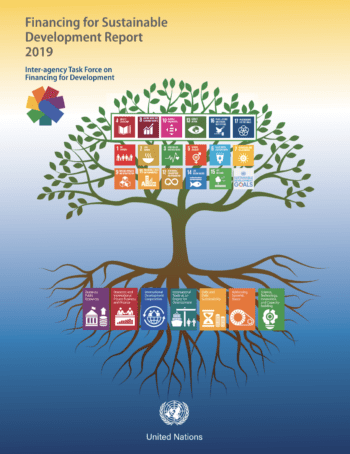Financing for Development Report 2019 Includes Alcohol Tax
 The United Nations (UN) Task Force on Financing for Development recently released the Financing for Sustainable Development Report (FSDR). The report warns mobilizing sufficient financing is still a major challenge for realizing Sustainable Development Goals (SDGs) put forth in the 2030 Agenda for Sustainable Development.
The United Nations (UN) Task Force on Financing for Development recently released the Financing for Sustainable Development Report (FSDR). The report warns mobilizing sufficient financing is still a major challenge for realizing Sustainable Development Goals (SDGs) put forth in the 2030 Agenda for Sustainable Development.
Investments critical for achieving the SDGs remain underfunded. The report recommends the international community to reshape national and international financial systems to reflect SDGs to achieve the goals by 2030.
The 2019 FSDR chapter overview is as follows:
- Chapter I deals with the global macroeconomic context.
- Chapter II is the thematic chapter. This chapter presents four building blocks to operationalize implementation of the Addis Agenda at the country level though integrated national financing frameworks (INFFs).
- The remainder of the report from chapters III.A to III.G and IV discusses progress in the seven action areas of the Addis Agenda.
- Each chapter consists of a summary highlighting key messages and policy options, updates on implementation, challenges and policy options on both the national and international levels.
Alcohol is Included, But Not Enough
Alcohol was only included in the best practices example of Chile.
“In 2014, Chile undertook a broad reform of its tax system, with the explicit objective of permanently increasing public spending on education and other social sectors. The reform aims to raise additional revenue equivalent to 3 per cent of GDP, while making the tax system more progressive. It included changes in the taxation of income of companies and individuals, changes to the tax incentives for saving and investment, and substantial increases in taxation on the consumption of goods harmful to health (tobacco, alcohol and sugary drinks).”
This shows how countries can use health promotion taxation to help finance efforts to achieve different SDGs, as per the FSDR.
Alcohol should have been addressed more substantially in the report. For example in the section about excluding investments in the alcohol industry since Big Alcohol is a major obstacle to sustainable development.
The chapter on domestic resource mobilization should also have covered the potential of alcohol taxation.
Alcohol, an Obstacle to Development
Alcohol adversely impacts 13 of the 17 Sustainable Development Goals and 52 of the 169 targets in the 2030 Agenda. It is, however, often overlooked in efforts to eradicate poverty and promote sustainable development.
Major issues of development and sustainability are negatively impacted by alcohol harm, across all three dimension of sustainable development: the social, environmental and the economic one.
Alcohol Taxation is a Key Tool to Finance Development
Alcohol taxation, when employed in an evidence-based manner, reaps positive effects for a number of Sustainable Development Goals according to the report on alcohol taxation published by IOGT International and EAAPA. The report finds that 10 out of the 17 Sustainable Development Goals – such as eradication of poverty and hunger, gender equality, good health and well being, quality education, or economic growth – are positively impacted by alcohol taxation measures.
